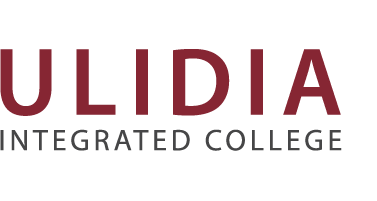ICT continues to revolutionise our world, and computers are an essential part of our everyday lives and society. Computers touch every aspect of our lives from the cars we drive to the games that we play and the way in which we handle information and communicate. The purpose of studying ICT at Ulidia Integrated College is to enable pupils to develop the skills, knowledge and attitudes to enable them to make effective use of ICT, now and in the future.
It is vital that all our pupils gain confidence and capability using computers which can also enhance and extend their learning across the whole curriculum. Pupils are encouraged to use their own initiative, imagination, and reasoning and investigative skills. They are the given opportunities to describe, illustrate, interpret, predict and explain when using technological language and conventions. They learn to work independently and collaboratively, sharing ideas and developing their own.
Pupils appreciate the relevance of ICT in our society, and they see it as an essential tool for learning, for communication, for finding information, and for controlling and understanding their environment. Every pupil learns how to safely use the Internet to search and access information and is continually encouraged to make sensible choices and remain safe at all times when online.

